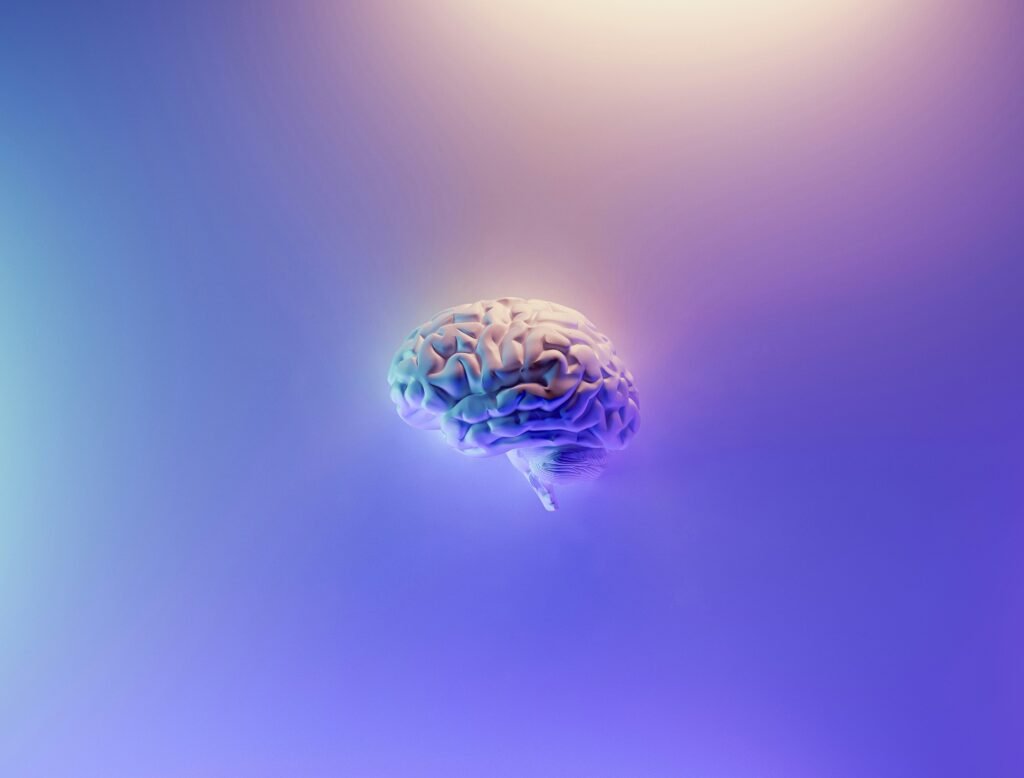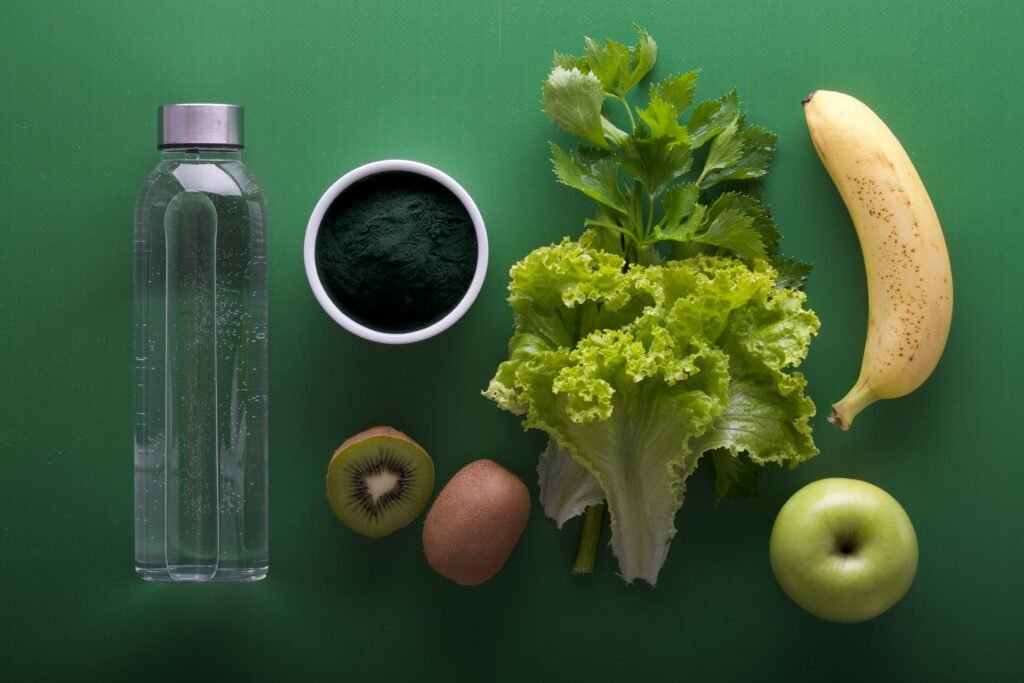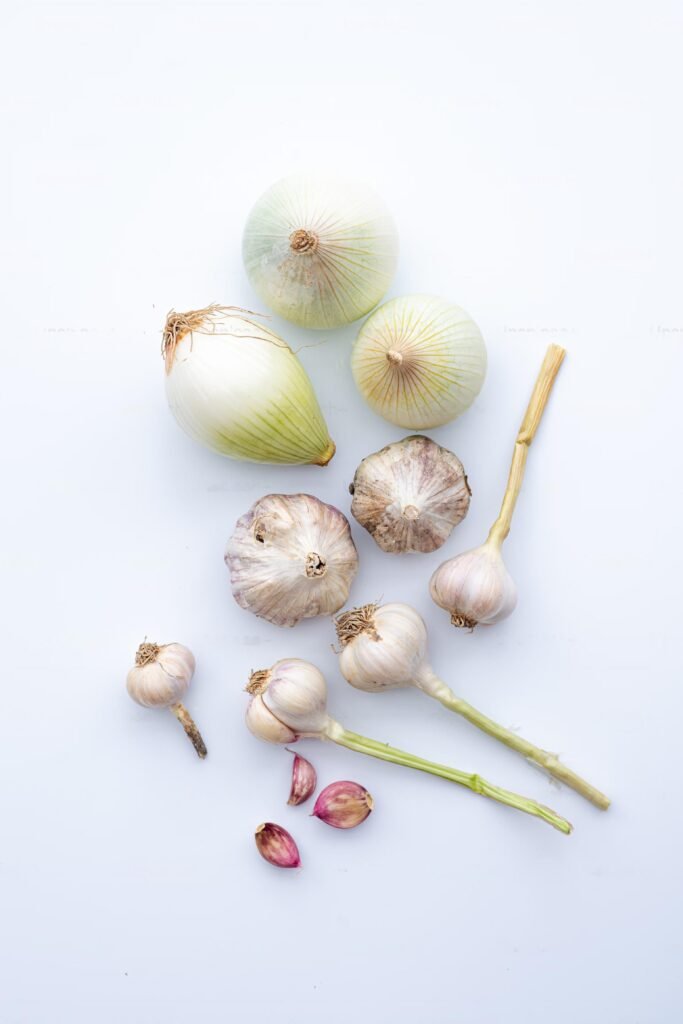Did you know your gut may hold the key to unlocking a healthier, clearer, and happier mind? Just as the Human Genome Project revolutionized our understanding of genetics and paved the way for groundbreaking medical discoveries, researchers are now taking a deep dive into what is known as the Human Microbiome Project. The Human Microbiome Project is a research initiative whose goal is to better understand your gut microbiome – the vast ecosystem of microorganisms living in your digestive tract.
With advanced technologies and innovative techniques, scientists are mapping out the wide variety of bacteria, fungi, viruses, and other microorganisms that call our gut home. By studying the composition, diversity, and function of gut microbes, researchers are able to gain insight into how these tiny inhabitants influence your physiology, metabolism, immune function, and even your mental wellbeing.
The connection between your gut and your brain, often referred to as the gut-brain axis, highlights how the health of your digestive system can influence other parts of your body, including your brain. Discover the surprising connection between your gut health and mental health, as we explore the science behind it and learn practical steps to support both aspects of your overall well-being.
What is the Gut Brain Connection?
Have you ever experienced “butterflies in your stomach” when feeling nervous, or craved comfort foods when feeling down? These are perfect examples that illustrate the connection between your gut and your brain, known as the gut-brain axis.
The gut-brain axis is a two-way communication network that connects your central nervous system which includes your brain and spinal cord with your enteric nervous system which includes your gut.
The following are key parts of the gut-brain connection which include your vagus nerve, several neurotransmitters, a variety of hormones, and immune systems cells:
Vagus Nerve
The vagus nerve is a major pathway that allows communication between your gut and your brain. It transmits two-way signals, allowing your brain to influence gut function and vice versa. For example, stress signals from your brain can impact digestion, while gut signals can influence mood and emotion.
Neurotransmitters
Did you know that your gut actually produces 95% of the serotonin in your body? It also produces other important neurotransmitters like dopamine and gamma-aminobutyric acid (GABA), which also influence your mood, cognition, and stress response.
Hormones
Hormones produced in the gut, like ghrelin, known as the “hunger hormone” and leptin, known as the “satiety hormone”, can signal to the brain to control appetite and food intake. An imbalance of these hormones can contribute to conditions like obesity and certain patterns of disordered eating.
Immune System
Your gut is home to a wide variety of immune cells that interact with your nervous system. Immune signals from the gut can influence brain function and behavior, and vice versa, once again emphasizing the link between your gut and other body systems.

The Connection Between Gut Health and Mental Health
Research has shown that imbalances in the gut microbiome, disruptions in gut barrier function, and inflammation in the gut can all negatively impact the gut-brain axis, leading to mood disorders like depression, anxiety, and stress-related conditions.
Depression
Depression affects a whopping 21% of the world’s population but is often misdiagnosed and as a result, left untreated.
Numerous studies have linked imbalances in the gut microbiome and the development and progression of depression. Research has shown that individuals with depression often show alterations in gut microbiota composition, with decreased diversity and a lower amount of healthy bacteria.
Certain bacteria in the gut produce important neurotransmitters like serotonin which play a key role in mood regulation. Imbalances in these neurotransmitters due to imbalances in the gut microbiome can contribute to depressive symptoms.
One 2022 study found that an unhealthy lifestyle, characterized by a diet high in unhealthy fats and sugar, along with unmanaged stress, led to gut inflammation. This promoted an imbalance in the gut microbiota, which researchers found can contribute to depression.
Studies are looking into the effect that certain strains of probiotics have on depressive symptoms. One 2019 study found that a specific strain of Lactobacillus may help treat major depressive disorder (MDD) through anti-inflammatory mechanisms and by increasing serotonin production.

Anxiety
Imbalances in the gut microbiome have also been linked to anxiety disorders. Researchers have found that the gut microbiome may effect stress hormones like cortisol which can influence the amygdala, the region of the brain responsible for processing emotions. A disturbance of these pathways can contribute to heightened anxiety and stress.
A team of researchers from Shanghai investigated whether symptoms of anxiety could be improved by balancing the gut microbiome. After reviewing 21 studies they found that balancing the gut microbiome by using probiotics or non-probiotic interventions like diet helped to reduce anxiety symptoms by balancing the intestinal microbiota.
Stress-related Conditions
Chronic stress can also impact the gut microbiome, leading to an imbalance in the healthy bacteria in your GI tract. This imbalance can further aggravate stress-related conditions like irritable bowel syndrome (IBS).
IBS is a common gastrointestinal disorder characterized by abdominal pain and altered bowel habits. In one 2023 review researchers explored the connection between Irritable Bowel Syndrome (IBS) and the gut microbiome. They found that a communication breakdown within the brain-gut axis is associated with IBS. This disruption can affect intestinal motility and the composition of the gut microbiome.
Additionally, one 2020 meta-analysis of 23 studies found lower levels of both Lactobacillus and Bifidobacterium, as well as higher levels of Escherichia coli and Enterobacter in the gut microbiome of people with IBS compared to people without the condition.

How to Support Both Your Gut Health and Mental Health
Promoting gut health through dietary and lifestyle interventions can support both your physical and mental health. The following are practical and scientifically sound ways to support your mental health through the health of your gut:
Eat a Balanced Diet
The link between a less than healthy diet and the tendency to develop a mental health condition has gained the attention of healthcare professionals and the scientific community at large.
The Standard American Diet (SAD) characterized by lower intakes of fruits and vegetables, and higher intakes of refined grains, fried and processed foods, red meat, and high-fat dairy products have been associated with higher rates of anxiety and depression.
Conversely, a higher intake of non-refined grains, vegetables, fruits, nut, seeds, eggs, fish, and olive oil is associated with less severe depression or anxiety.
In fact, one 2018 meta-analysis of epidemiological studies found that every increase in 100 grams of whole fruits or vegetables corresponded with a 5% reduction risk of depression. 100 grams of a fruit or vegetable is approximately one medium-sized apple, 1 cup of sliced strawberries, or 1 cup of cherry tomatoes.
Does your diet have to look perfect every day? No. However, it’s always best to include a wide range of whole, less-processed foods, including fruits, vegetables, whole grains, lean proteins, legumes, and healthy fats. These foods can promote gut health by nourishing the healthy bacteria residing there.

Incorporate Fermented Foods
Include fermented foods such as yogurt, kefir, tempeh, kimchi, sauerkraut, and kombucha in your diet. These foods are rich in probiotics, the beneficial bacteria that support gut health and may positively influence your mood and mental health.
One smaller 2016 study found that stressed-out students who consumed a fermented drink had less cortisol and fewer symptoms of stress than the control group.
Add Prebiotic-rich Foods
While probiotics have been in the limelight for decades, don’t forget about prebiotics. Prebiotics are non-digestible fibers found in certain foods that promote the growth of beneficial gut bacteria.
A recent study found that prebiotic food intake may have a positive effect on stress, and in turn, your mental health. Sources of prebiotics include onions, garlic, leeks, bananas, asparagus, and whole grains. Including these foods in your diet can support a healthy and balanced gut microbiome.

Limit Processed Foods and Added Sugars
Research has found that eating large amounts of processed foods can change the composition of your gut microbiome and may cause intestinal inflammation. This can set the stage for problems related to mental health via the gut-brain axis.
Try to minimize your intake of processed foods, sweet snacks, and sugary beverages and focus on whole, minimally processed foods to support you physical and mental health.
Manage Stress
Chronic stress can disrupt the gut-brain axis and negatively impact gut health. According to one 2023 systematic review, psychological stress is associated with changes in the healthy balance and diversity of the gut microbiome.
Since stress can disrupt the balance of your gut microbiome, it’s important to consider including stress management techniques into your daily routine. Practicing mindfulness, meditation, deep breathing exercises, yoga, or spending time in nature can help you decompress and destress.

Get Adequate Sleep
Studies have found that sleep deprivation can alter your gut microbiota composition, decreasing the diversity of healthy bacteria while promoting the growth of harmful bacteria.
Additionally, having a balanced gut microbiome may make quality sleep more of a reality. For example, one recent study found that the amount of certain types of bacteria, named Lachnospiraceae UCG004 and Odoribacter, supported longer sleep, while other bacteria like Selenomonadales and Negativicutes increased the risk of insomnia.
Prioritize quality sleep by trying to maintain a regular sleep schedule while aiming for 7 to 9 hours of sleep per night. Additionally, consider ways to improve your sleep hygiene by creating a comfortable sleep environment free of distractions, practicing relaxation techniques before bedtime, and limiting caffeine and electronics close to bedtime.

Stay Hydrated
Believe it or not, drinking water can support the health of your gut in a variety of ways. Research has found that drinking water can help diversify the bacteria throughout your gut microbiome.
Additionally, drinking plenty of water throughout the day can support healthy digestion, nutrient absorption, and optimal energy levels. Dehydration can affect gut motility and lead to digestive issues, so staying hydrated is essential for a happy and healthy gut.
Move Your Body on a Regular Basis
There appears to be strong link between exercise and the health of your gut. One 2023 review of 28 studies found that exercising for 30 to 90 minutes at least 3 times per week can positively impact your gut microbiome.
Engage in some type of movement every day. Don’t love sweating it out at the gym? Try going for a walk, a bike ride, or dancing. Regular physical activity has been shown to positively influence gut microbiota composition and support mental well-being.

Consider Probiotics
The role of probiotics in mental health has been a widely debated topic among scientists and researchers. One recent review found that probiotics may be an effective way to help treat mental health disorders, however, researchers noted that the current evidence remains inconclusive.
While more research is on the horizon, it’s important to note that some studies have found that probiotics have had a positive effect on mental health. For example, one 2022 study found that taking a high-dose probiotic with a wide variety bacteria strains led to decreases in symptoms of depression.
Another more recent study found that people with major depressive disorder who took a multi-strain probiotic supplement along with their antidepressant medication had reduced depressive symptoms.
While the jury is still out on the effectiveness of probiotics in helping to reduce symptoms of common mental health disorders, it’s worth talking to your healthcare provider on whether a probiotic supplement may be beneficial for you.
Seek Professional Support
If you’re struggling with your mental health, remember that you are not alone. In fact, an estimated 26% of Americans ages 18 and older struggles with a diagnosable mental disorder in a given year.
Consider seeking support from a healthcare professional, such as a therapist, psychologist, or psychiatrist. They can provide personalized recommendations and treatment options to support your health and wellbeing.
The Bottom Line
The complex connection between your gut health and mental health highlights the importance of maintaining a balanced microbiome for your overall well-being.
As research continues to unfold, it’s becoming clear that supporting your gut health through diet and lifestyle choices can have a profound impact on not only your physical health, but on your mental health as well. From eating probiotic-rich foods to implementing stress management techniques, there are various ways you can support a harmonious balance between your gut and mind, ultimately leading to a happier and healthier life.
References:
- The Integrative HMP (iHMP) Research Network Consortium. The Integrative Human Microbiome Project. Nature 569, 641–648 (2019). https://doi.org/10.1038/s41586-019-1238-8
- Mayer, Emeran A., Karina Nance, and Shelley Chen. “The gut–brain axis.” Annual review of medicine73 (2022): 439-453.
- Breit S, Kupferberg A, Rogler G, Hasler G. Vagus Nerve as Modulator of the Brain-Gut Axis in Psychiatric and Inflammatory Disorders. Front Psychiatry. 2018 Mar 13;9:44. doi: 10.3389/fpsyt.2018.00044. PMID: 29593576; PMCID: PMC5859128.
- Appleton J. The Gut-Brain Axis: Influence of Microbiota on Mood and Mental Health. Integr Med (Encinitas). 2018 Aug;17(4):28-32. PMID: 31043907; PMCID: PMC6469458.
- Wittekind DA, Kratzsch J, Mergl R, Baber R, Wirkner K, Schroeter ML, Witte AV, Villringer A, Kluge M. Leptin, but not ghrelin, is associated with food addiction scores in a population-based subject sample. Front Psychiatry. 2023 Jul 25;14:1200021. doi: 10.3389/fpsyt.2023.1200021. PMID: 37559914; PMCID: PMC10407557.
- Irum N, Afzal T, Faraz MH, Aslam Z, Rasheed F. The role of gut microbiota in depression: an analysis of the gut-brain axis. Front Behav Neurosci. 2023 Jun 2;17:1185522. doi: 10.3389/fnbeh.2023.1185522. PMID: 37333479; PMCID: PMC10272349.
- Liu L, Wang H, Chen X, Zhang Y, Zhang H, Xie P. Gut microbiota and its metabolites in depression: from pathogenesis to treatment. EBioMedicine. 2023 Apr;90:104527. doi: 10.1016/j.ebiom.2023.104527. Epub 2023 Mar 22. PMID: 36963238; PMCID: PMC10051028.
- Chang L, Wei Y, Hashimoto K. Brain-gut-microbiota axis in depression: A historical overview and future directions. Brain Res Bull. 2022 May;182:44-56. doi: 10.1016/j.brainresbull.2022.02.004. Epub 2022 Feb 11. PMID: 35151796.
- Heym N, Heasman BC, Hunter K, Blanco SR, Wang GY, Siegert R, Cleare A, Gibson GR, Kumari V, Sumich AL. The role of microbiota and inflammation in self-judgement and empathy: implications for understanding the brain-gut-microbiome axis in depression. Psychopharmacology (Berl). 2019 May;236(5):1459-1470. doi: 10.1007/s00213-019-05230-2. Epub 2019 Apr 7. PMID: 30955108; PMCID: PMC6598942.
- Rusch JA, Layden BT, Dugas LR. Signalling cognition: the gut microbiota and hypothalamic-pituitary-adrenal axis. Front Endocrinol (Lausanne). 2023 Jun 19;14:1130689. doi: 10.3389/fendo.2023.1130689. PMID: 37404311; PMCID: PMC10316519.
- Yang B, Wei J, Ju P, et al Effects of regulating intestinal microbiota on anxiety symptoms: A systematic review General Psychiatry 2019;32:e100056. doi: 10.1136/gpsych-2019-100056
- Shaikh SD, Sun N, Canakis A, Park WY, Weber HC. Irritable Bowel Syndrome and the Gut Microbiome: A Comprehensive Review. J Clin Med. 2023 Mar 28;12(7):2558. doi: 10.3390/jcm12072558. PMID: 37048642; PMCID: PMC10095554.
- Wang L, Alammar N, Singh R, Nanavati J, Song Y, Chaudhary R, Mullin GE. Gut Microbial Dysbiosis in the Irritable Bowel Syndrome: A Systematic Review and Meta-Analysis of Case-Control Studies. J Acad Nutr Diet. 2020 Apr;120(4):565-586. doi: 10.1016/j.jand.2019.05.015. Epub 2019 Aug 28. PMID: 31473156.
- Álvarez SA, Rocha-Guzmán NE, González-Laredo RF, Gallegos-Infante JA, Moreno-Jiménez MR, Bravo-Muñoz M. Ancestral Food Sources Rich in Polyphenols, Their Metabolism, and the Potential Influence of Gut Microbiota in the Management of Depression and Anxiety. J Agric Food Chem. 2022 Feb 2;70(4):944-956. doi: 10.1021/acs.jafc.1c06151. Epub 2022 Jan 18. PMID: 35041424.
- Selvaraj R, Selvamani TY, Zahra A, Malla J, Dhanoa RK, Venugopal S, Shoukrie SI, Hamouda RK, Hamid P. Association Between Dietary Habits and Depression: A Systematic Review. Cureus. 2022 Dec 9;14(12):e32359. doi: 10.7759/cureus.32359. PMID: 36632273; PMCID: PMC9828042.
- Saghafian F, Malmir H, Saneei P, Milajerdi A, Larijani B, Esmaillzadeh A. Fruit and vegetable consumption and risk of depression: accumulative evidence from an updated systematic review and meta-analysis of epidemiological studies. Br J Nutr. 2018 May;119(10):1087-1101. doi: 10.1017/S0007114518000697. PMID: 29759102.
- Takada M, Nishida K, Kataoka-Kato A, Gondo Y, Ishikawa H, Suda K, Kawai M, Hoshi R, Watanabe O, Igarashi T, Kuwano Y, Miyazaki K, Rokutan K. Probiotic Lactobacillus casei strain Shirota relieves stress-associated symptoms by modulating the gut-brain interaction in human and animal models. Neurogastroenterol Motil. 2016 Jul;28(7):1027-36. doi: 10.1111/nmo.12804. Epub 2016 Feb 20. PMID: 26896291.
- İnce Palamutoglu M, Köse G, Bas M. Probiotics and Prebiotics Affecting Mental and Gut Health. Healthcare. 2024; 12(5):510. https://doi.org/10.3390/healthcare12050510
- Song Z, Song R, Liu Y, Wu Z, Zhang X. Effects of ultra-processed foods on the microbiota-gut-brain axis: The bread-and-butter issue. Food Res Int. 2023 May;167:112730. doi: 10.1016/j.foodres.2023.112730. Epub 2023 Mar 21. PMID: 37087282.
- Ma L, Yan Y, Webb RJ, Li Y, Mehrabani S, Xin B, Sun X, Wang Y, Mazidi M. Psychological Stress and Gut Microbiota Composition: A Systematic Review of Human Studies. Neuropsychobiology. 2023;82(5):247-262. doi: 10.1159/000533131. Epub 2023 Sep 6. PMID: 37673059.
- Sun J, Fang D, Wang Z, Liu Y. Sleep Deprivation and Gut Microbiota Dysbiosis: Current Understandings and Implications. Int J Mol Sci. 2023 May 31;24(11):9603. doi: 10.3390/ijms24119603. PMID: 37298553; PMCID: PMC10253795.
- Yue M, Jin C, Jiang X, Xue X, Wu N, Li Z, Zhang L. Causal Effects of Gut Microbiota on Sleep-Related Phenotypes: A Two-Sample Mendelian Randomization Study. Clocks Sleep. 2023 Sep 12;5(3):566-580. doi: 10.3390/clockssleep5030037. PMID: 37754355; PMCID: PMC10527580.
- Vanhaecke T, Bretin O, Poirel M, Tap J. Drinking Water Source and Intake Are Associated with Distinct Gut Microbiota Signatures in US and UK Populations. J Nutr. 2022 Jan 11;152(1):171-182. doi: 10.1093/jn/nxab312. PMID: 34642755; PMCID: PMC8754568.
- Boytar AN, Skinner TL, Wallen RE, Jenkins DG, Dekker Nitert M. The Effect of Exercise Prescription on the Human Gut Microbiota and Comparison between Clinical and Apparently Healthy Populations: A Systematic Review. Nutrients. 2023 Mar 22;15(6):1534. doi: 10.3390/nu15061534. PMID: 36986264; PMCID: PMC10054511.
- Madabushi JS, Khurana P, Gupta N, Gupta M. Gut Biome and Mental Health: Do Probiotics Work? Cureus. 2023 Jun 12;15(6):e40293. doi: 10.7759/cureus.40293. PMID: 37448433; PMCID: PMC10337499.
- Schaub, AC., Schneider, E., Vazquez-Castellanos, J.F. et al.Clinical, gut microbial and neural effects of a probiotic add-on therapy in depressed patients: a randomized controlled trial. Transl Psychiatry 12, 227 (2022). https://doi.org/10.1038/s41398-022-01977-z
- Nikolova VL, Cleare AJ, Young AH, Stone JM. Acceptability, Tolerability, and Estimates of Putative Treatment Effects of Probiotics as Adjunctive Treatment in Patients With Depression: A Randomized Clinical Trial. JAMA Psychiatry.2023;80(8):842–847. doi:10.1001/jamapsychiatry.2023.1817
- National Institute of Mental Health (2023). https://www.nimh.nih.gov/health/statistics/mental-illness



